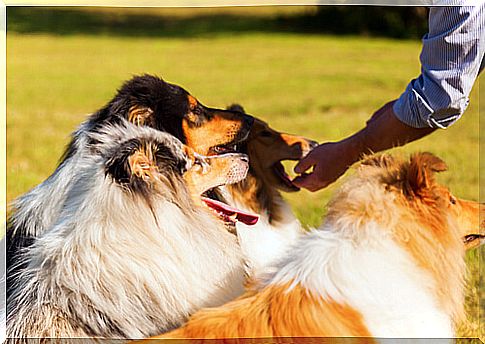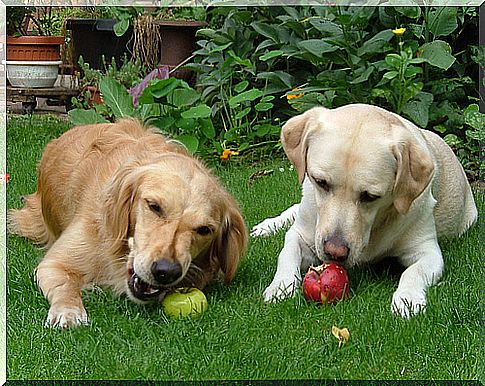Intolerance To Certain Foods In Dogs

There is a misconception that dogs can eat anything. This is not true, and in fact, like many people, they too can suffer intolerances to certain foods. It is important that you make sure if your dog can suffer some kind of intolerance. In this article we talk about the most common foods and signs that your dog has an intolerance to them.
First, we must know what intolerance is, since many times there are people who confuse it with an allergy. The truth is that there is a big difference: intolerance can kill you, while an allergy cannot.
What is intolerance?

Intolerance is the rejection of certain foods or any of its components creating discomfort in our body. These discomforts can be:
- Headache
- Vomiting
- Overweight
- Diarrhea
- Joint swelling
- Chronic fatigue
- Skin changes
Sometimes we can suffer intolerance to a certain food that we are consuming without even knowing it. This can bring great risks to our health, so it is recommended to take an intolerance test, and therefore, we must also do it to our pet.
The difference between allergy and intolerance is that the latter is localized in the intestinal system while allergies produce a reaction of the immune system. Now, what foods cause intolerance to dogs?
Most common foods that can cause intolerance
There may be exceptions; Not all dogs will show intolerance to the foods that we are going to mention, and it is possible that there are some others that can also cause it:
- Milk and all its derivatives. Its derivatives are cheese, yogurts, cream and anything else that contains milk; all can produce intolerance to your dogs as it happens with many people.
- Salt. Prepared dog foods have a very controlled level of salt substitutes, since the salt itself is expelled through diarrhea and vomiting by the dog’s body, thus showing its intolerance to it.
- Fermented dough. Any type of product that contains yeast can cause intolerance in your dog, so you should avoid giving him foods such as bread.
Now, knowing that there are foods that can cause intolerance in your animal, how can you know what they are and what to do?
How to discover food intolerance in dogs
The first thing that the vet will suggest is a blood test, although this can not always show food intolerance, so other tests will be carried out.
Another of the tests consists of feeding the dog for 8 weeks with a hypoallergenic diet to eliminate foods that can cause him ill. This test is also carried out with dogs that show some type of allergy depending on what foods.
Can intolerance be prevented?

The answer is simple, unfortunately no. There are certain breeds of dogs that are more prone to it, but none are exempt from it.
The most exposed are the French Bull Dog and the Boxer, but even so, you cannot know if a dog suffers from it until you see some symptoms and the relevant tests are done.
Although there is no magic formula to prevent intolerance, it is important that when dogs are puppies they are fed with mother’s milk and that as they accept another type of diet, give them good quality feed. Both of these actions will improve and strengthen your dog’s immune system. This will lower your risk of food intolerance.
However, our recommendation is that you consult your vet which type of diet is most appropriate for your dog and that you follow their instructions. It is not usually advisable to give food that is not special for dogs, since these, in addition to being able to damage their digestive system, can cause allergies or even intolerances.
Image courtesy of Tom Leuntjens.









